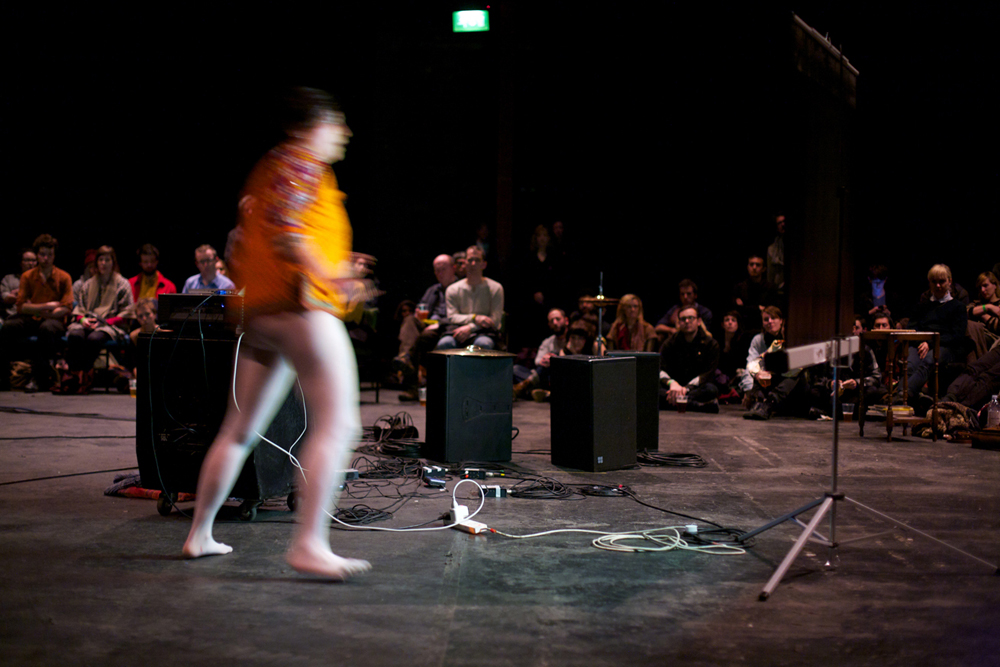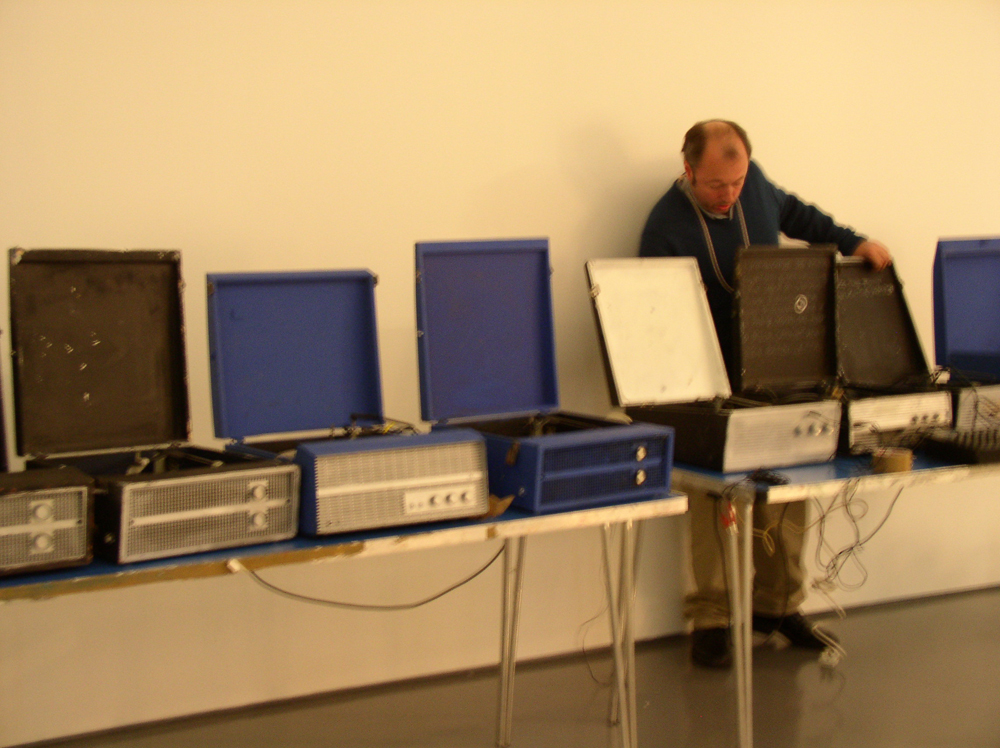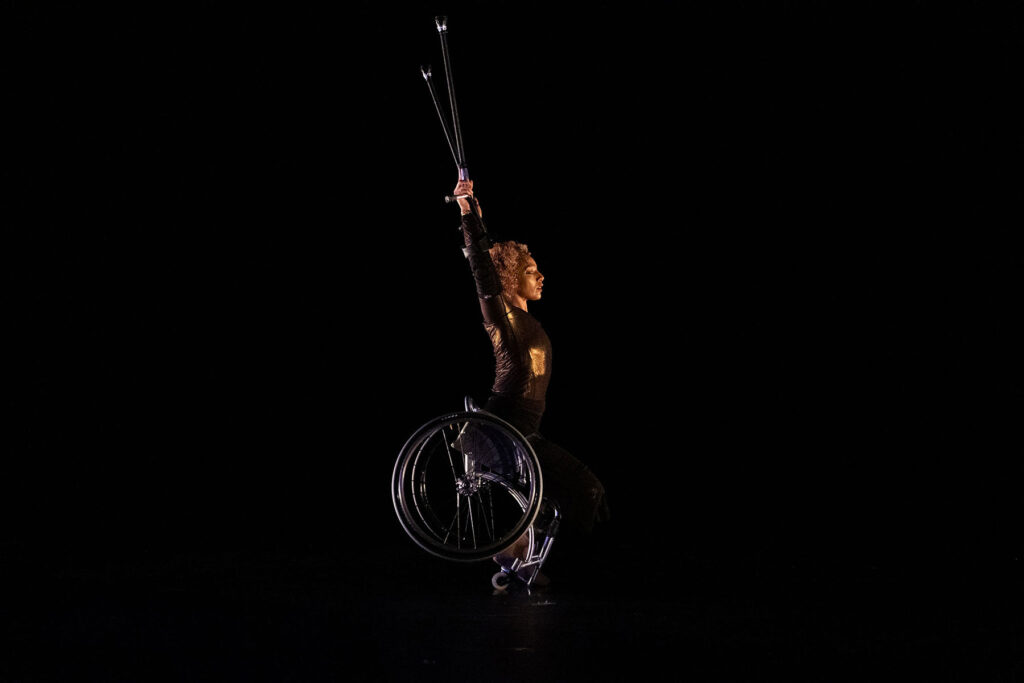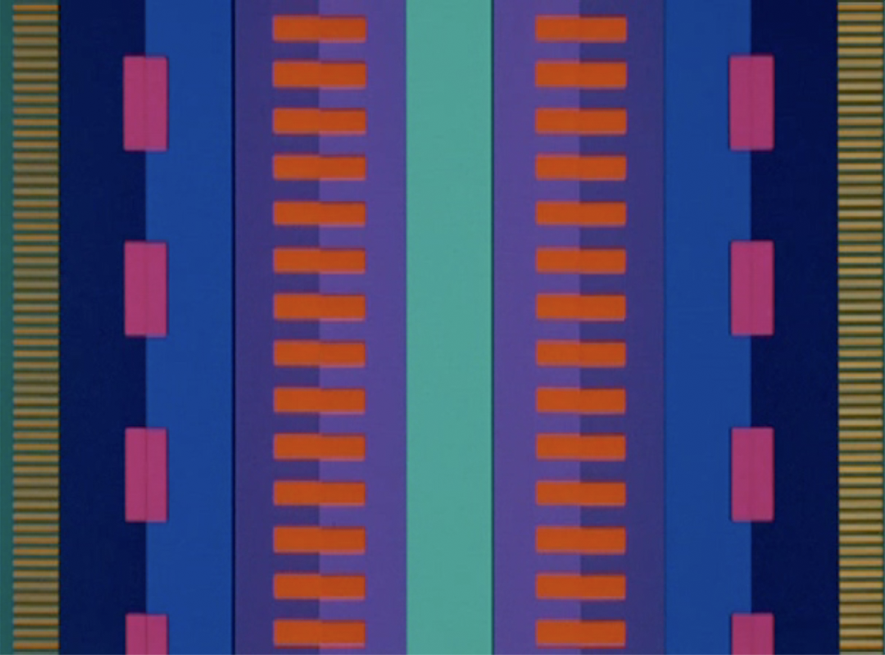
Lethe
Kiyoharu Kuwayama
A performance for dry ice and four specially constructed steel tables, each one heated by a single candle until searingly hot.
Arika have been creating events since 2001. The Archive is space to share the documentation of our work, over 600 events from the past 20 years. Browse the archive by event, artists and collections, explore using theme pairs, or use the index for a comprehensive overview.

A performance for dry ice and four specially constructed steel tables, each one heated by a single candle until searingly hot.

Slapstick comedy, monologue, and a kind of live sculpture transformed through video, props, musical instruments and make-up.

Finnish duo Grönlund Nisunen are known for their extraordinary work fusing incredible sounds with stunning objects in large scale sculptural installations.

A chat, with examples (Zola, H. P. Lovecraft, Hammer Horror), about blackness and the sheer stupid thickness of what has no profundity whatsoever.

Equal parts spectacle, installation and performance, his set for us is a specially developed work, ‘turning’, which features an orchestra of multiple turntables, 4 projections and a collection of old, and, quite probably, misfiring analogue kit.

Open community meeting to discuss some of the prevalent concerns impacting the ballroom community.

A trance inducing, flickering investigation of structural and minimalist droning from one of the key thinkers in sound and image over the last 50 years

During Episode 9 we made this clip with Storyboard P at Kinning Park Complex. Video by Ash Reid.

From really simple, open instructions, An Unrhymed Chord creates a kind of half-way point between composition and improvisation.

An occasion for commotion, and a chorus of motions. Choreography rotating your revolutions and then some.

An improvised film about our worlds at the brink, on the edge, in front of a crisis. To stand on the side of life, by seeing the resistance to genocide in Palestine as a turning point to overcome.

The first of two short film programmes featuring works that blur the boundaries between music and film from artists who cross and redefine those long held divisions. This programme focuses on the forebearers of filmic and musical innovation over the last 70 years.